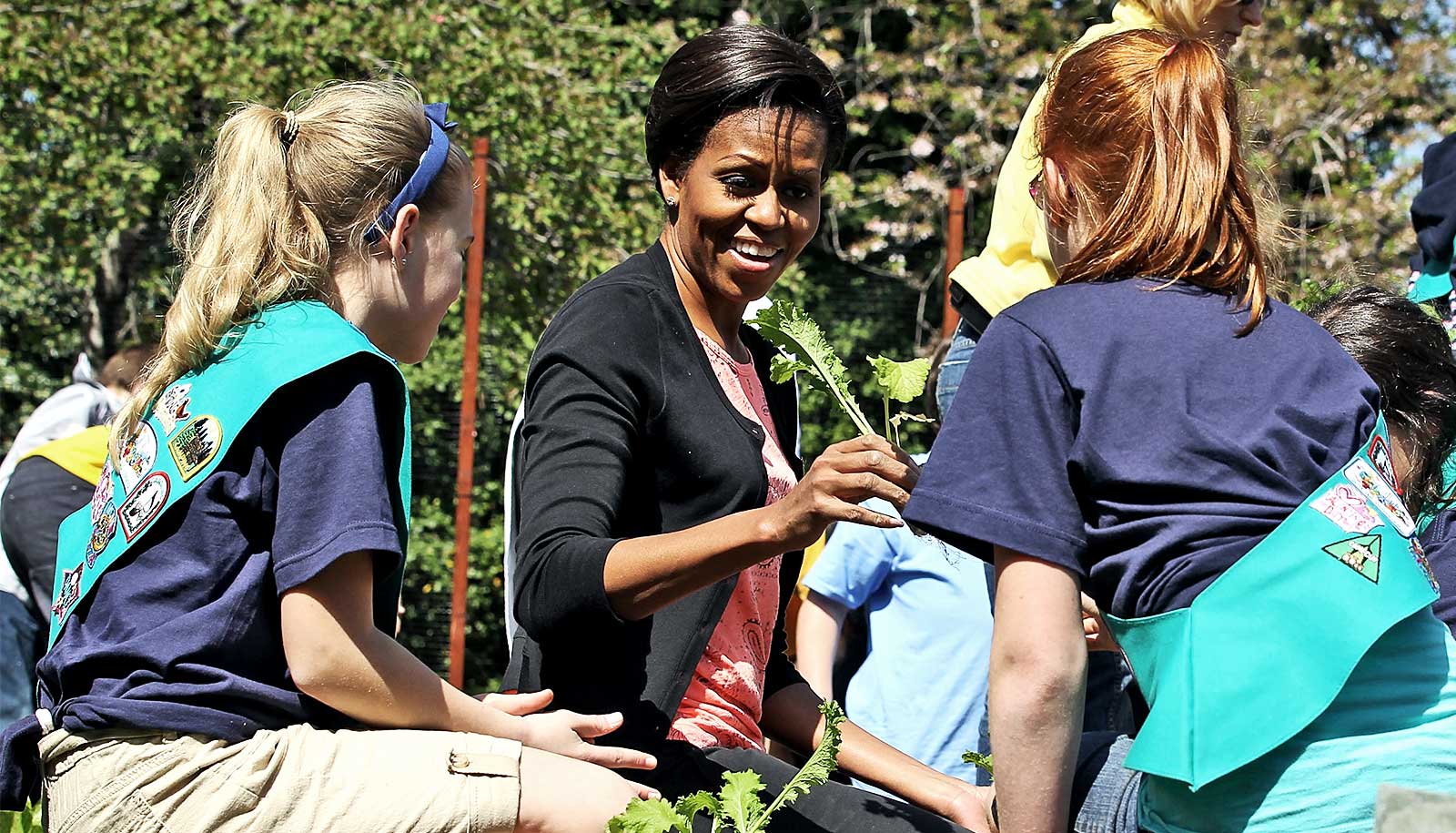Even a seemingly uncontroversial topic can become politicized when the person advocating for it is a polarizing figure, a new study shows.
“I was puzzled by the debate about whether school lunches should be more nutritious, because children’s nutrition should seemingly be a valence issue,” says Cindy Kam, professor of political science and director of the Research on Individuals, Politics and Society Lab at Vanderbilt University.
“That is, making school lunches healthier seems like something everyone would support, regardless of their political beliefs.”
The reason for the divide, Kam suspects, may have been that the chief advocate—the source cue—of improved school nutrition at the time was First Lady Michelle Obama, who was very popular among Democrats and very unpopular among Republicans.
To test the theory, she designed a survey experiment delivered to a nationally representative cross-section of Americans. Each participant received a 250-word article that highlighted the issue of childhood obesity, implicated school lunches as a significant cause, and proposed tighter nutritional standards for school lunches as a remedy.
All three articles said the same thing except for one small variation: the source advocating the policy. Researchers told one-third of the survey respondents that Michelle Obama was proposing these tighter nutritional standards, another third that the proposal was from the US military, and the final third that the proposal came from scientific experts.
Overall, support for improving school lunch nutrition was highest when the proposals were attributed to the US military and scientific experts and lowest when Michelle Obama was tied to the proposal.
Political preferences mattered too: Support for tighter nutrition standards was highest among strong Democrats, averaging around 95% regardless of its source. However, support trended steadily downward the more conservative respondents got, with the lowest support found among strong Republicans, regardless of source.
Source cues began to matter more the more conservative respondents got, as well. Among the most conservative respondents—the strong Republicans—60% supported tighter nutritional standards when the source cue was the US military and 56 supported it when the source was scientific experts, while only 33% supported it when the proposal was attributed to Michelle Obama.
Because of Michelle Obama’s role as the nation’s first African American first lady, Kam also tested respondents to see if her race and/or gender influenced their attitudes. She found that racism reduced support somewhat—about 10 percentage points—for the proposal regardless of who the source was. However, sexism had a profound effect on support, reducing it by as much as 45 percentage points in the military group, 60 percentage points in the scientific experts group, and 90 percentage points in the Michelle Obama group.
Finally, Kam asked all respondents to reflect on what they recalled from the proposal they’d just read. The open-endedness of the question gave Kam a glimpse into not only what they remembered but what they thought about it.
“I was really struck by how many people honed in on the messenger over the message, even though the messenger took up only 3% of the words in the article,” she says. In the Michelle Obama group, 35% mentioned her name, while 45% in the military group mentioned the military, and 11% in the scientific experts group mentioned scientists.
“Source cues matter, even on seemingly uncontroversial topics,” Kam says. “We know that there are many complicated political issues that are easily framed and attributed to different sides. We also know that people take cues to simplify their understanding of complicated issues and to decide where to stand on the issue.
“My study shows that cue-taking extends even to a seemingly uncontroversial issue with which many people have first-hand experience. Although cues give us information shortcuts, they also divide us—even on issues where we might otherwise agree.”
The study appears in the Journal of Politics.
Source: Vanderbilt University



